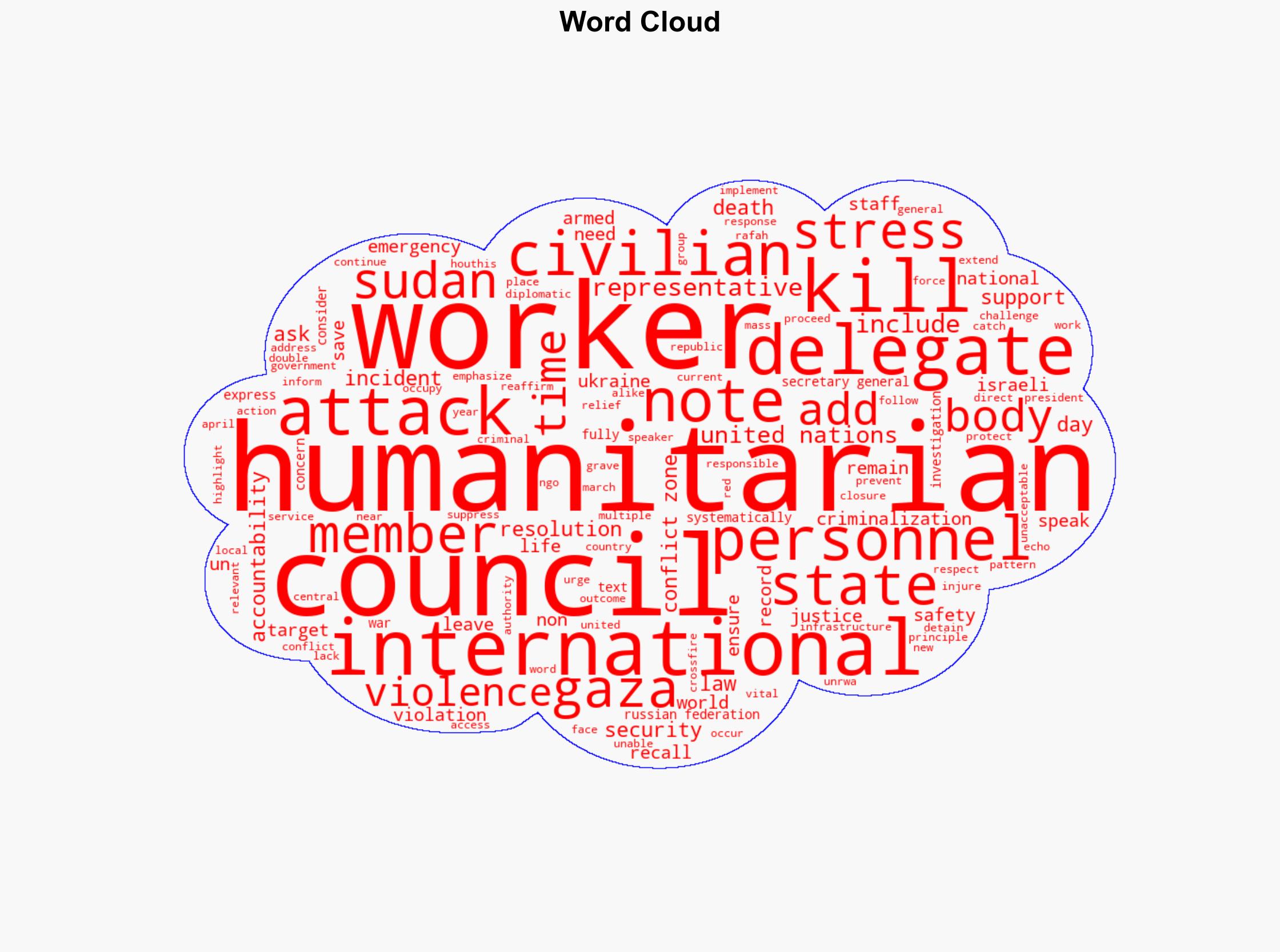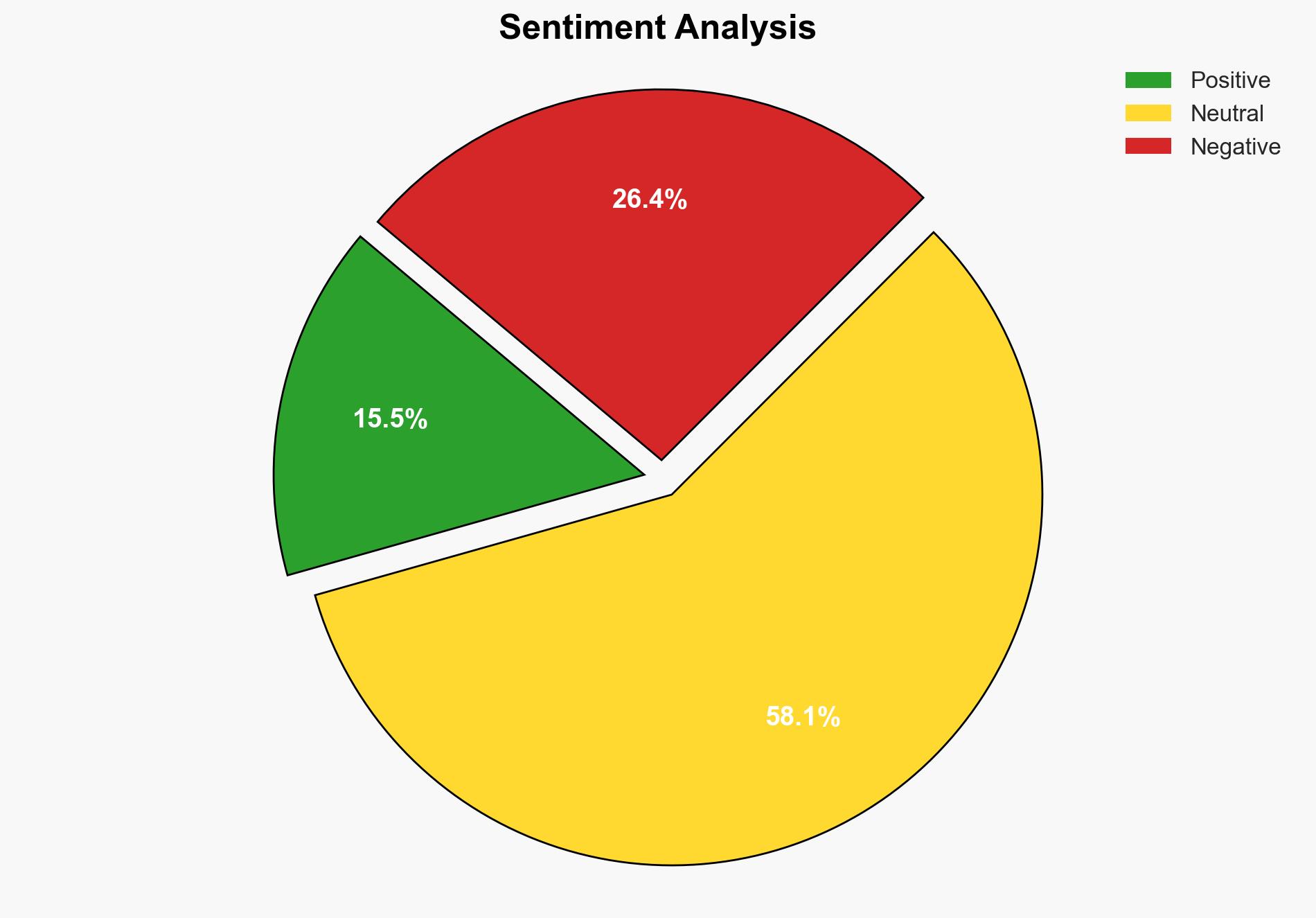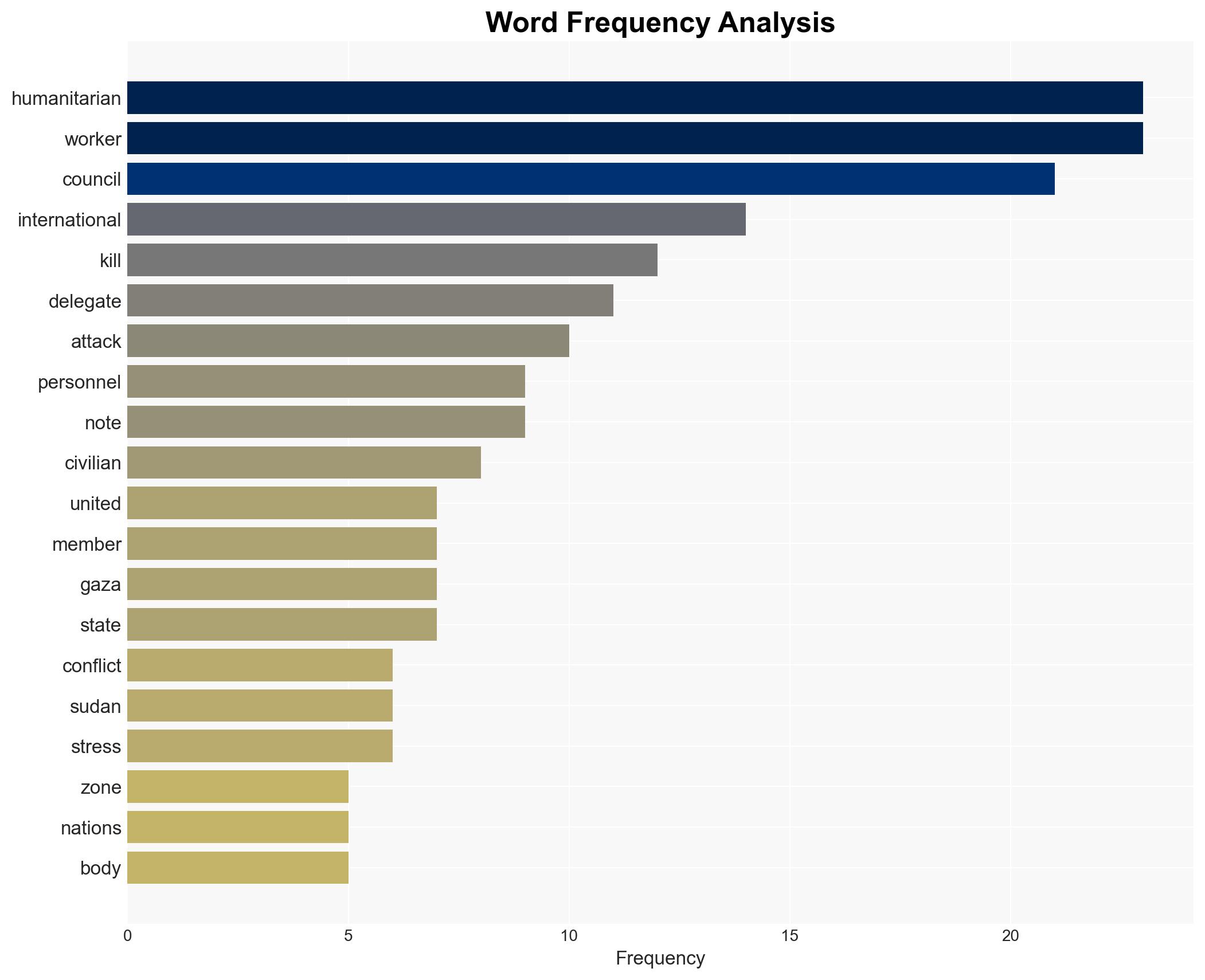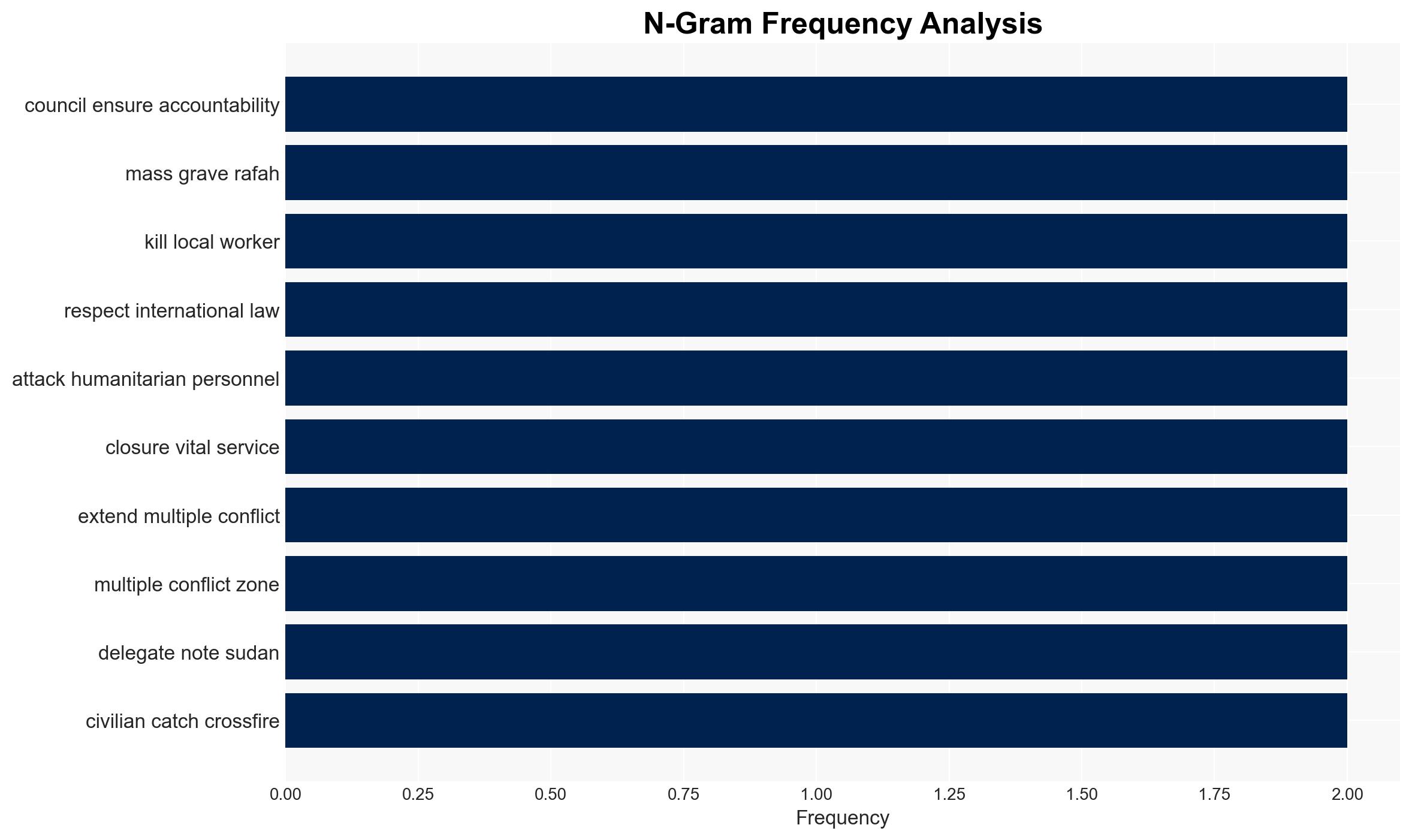Amid Record High Killing of Humanitarian Workers Speakers Implore Security Council to Ensure Accountability for Attacks on Personnel in Conflict Zones – UN News
Published on: 2025-04-02
Intelligence Report: Amid Record High Killing of Humanitarian Workers Speakers Implore Security Council to Ensure Accountability for Attacks on Personnel in Conflict Zones – UN News
1. BLUF (Bottom Line Up Front)
The current situation reveals an unprecedented increase in attacks on humanitarian workers in conflict zones, prompting calls for the Security Council to ensure accountability. Key findings indicate a record number of humanitarian workers have been killed, injured, or kidnapped, with significant incidents reported in Sudan and Gaza. The lack of a robust international legal framework and political will to enforce existing laws exacerbates the crisis. Recommendations include enhancing international legal protections and ensuring consistent accountability measures.
2. Detailed Analysis
The following structured analytic techniques have been applied for this analysis:
General Analysis
The analysis highlights the vulnerability of humanitarian workers, particularly local staff, who face the highest risks. The situation in Sudan and Gaza underscores the dangers in these regions, with humanitarian workers often targeted during active conflicts. Disinformation campaigns further complicate their operations, leading to increased hostility and violence. The lack of media coverage for local worker casualties compared to international staff highlights a disparity that needs addressing.
3. Implications and Strategic Risks
The continued targeting of humanitarian workers poses significant risks to regional stability and international humanitarian efforts. The normalization of impunity for attacks on humanitarian personnel could lead to decreased international aid presence, exacerbating humanitarian crises. The criminalization of humanitarian work and the closure of vital services due to violence threaten to destabilize already volatile regions, impacting global security and economic interests.
4. Recommendations and Outlook
Recommendations:
- Strengthen international legal frameworks to protect humanitarian workers and ensure accountability for attacks.
- Enhance diplomatic efforts to facilitate the safe operation of humanitarian missions in conflict zones.
- Increase media coverage and awareness of local humanitarian worker casualties to ensure equitable attention and resources.
- Implement measures to counter disinformation campaigns targeting humanitarian organizations.
Outlook:
In the best-case scenario, increased international cooperation and legal reforms lead to enhanced protection for humanitarian workers and a reduction in attacks. In the worst-case scenario, continued impunity and violence result in the withdrawal of humanitarian aid, worsening regional crises. The most likely outcome involves incremental improvements in legal protections and accountability, with ongoing challenges in high-conflict areas.
5. Key Individuals and Entities
The report mentions Joyce Msuya and Gille Michaud as significant individuals advocating for the protection of humanitarian workers. Organizations such as the United Nations and the International NGO Safety Organisation are highlighted for their roles in addressing these issues.





